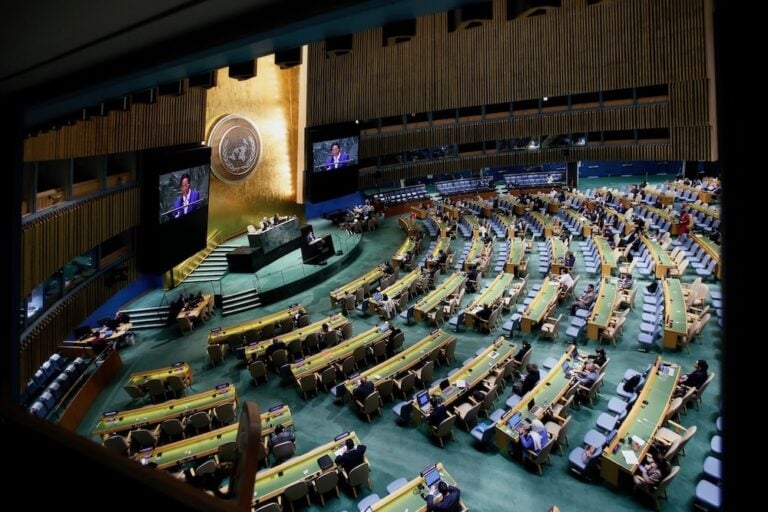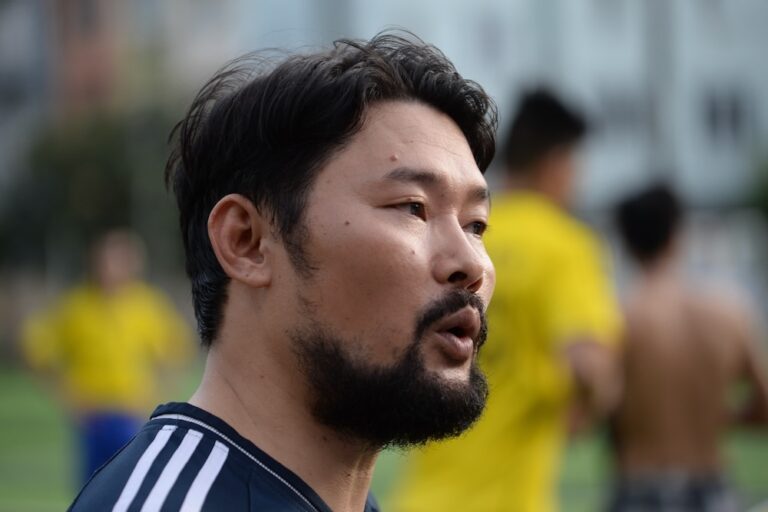A reflection on Vietnamese blogger Dieu Cay's time in prison and his freedom, by lawyer and human rights activist Christine Dang.
This statement was originally published on pencanada.ca on 15 January 2015.
By Christine Dang
In October 2013, blogger Dieu Cay received PEN Canada’s One Humanity Award for his courageous dissent and continued advocacy for human rights in Vietnam despite a crackdown on online writing by authorities. Lawyer and human rights activist Christine Dang accepted the award in Toronto on Dieu Cay’s behalf who was, at the time, serving a 12-year prison sentence for “conducting propaganda against the state.” A year later, Dieu Cay was released. The following is a reflection on his time in prison and his freedom.
Too Warm, Too Bright
For the following 3 nights, I couldn’t sleep. It wasn’t just the jetlag, the freedom, the uncertainty of a new life in exile … I finally realized that it was actually the mattress, the electric lamp by the bedside, and the big, bright window.
He spent 6.5 years in 11 different prisons. Sixty-two-year-old Nguyễn Văn Hải, founder of the Free Journalist Network in Vietnam (FJNV), is a blogger known internationally by his pen name Dieu Cay (“peasant’s waterpipe”). He was finally released on October 20, 2014, whereupon he was taken from prison directly to Noi Bai airport and forced into exile. En route to Los Angeles, in the company of U.S. State Dept. staff, he placed a brief phone call to his son in Ho Chi Minh city to let the family know he had just been freed.
I saw him again, after 6.5 years, in a little rental flat near L.A. airport. He greeted me with the same gentle smile and big open arms. This skinny, 7-ft-tall man still has the same fighting spirit I remembered. During the next 5 days, he recounted those endless days in dark, solitary cells. He’d held two hunger strikes to protest the harsh prison conditions and the arbitrary manner in which he had been denied access to a lawyer, to pen and paper to write up a grievance, even the opportunity to submit his complaint to the Procuracy. When he urged other prisoners to register a collective complaint, he was was placed in solitary confinement for months. His first hunger strike lasted 28 days; the second, 33. Neither produced an official response, nor any improvements in the prison conditions, just an inflammatory, failing kidney and other ailments that landed him in the hospital’s emergency ward.
When I ask how he felt when he landed in L.A., California, he smiles. “I stepped out of the gate and saw a sea of faces with flowers and welcoming banners with my name on them. I couldn’t believe it. For the following 3 nights, I couldn’t sleep. It wasn’t just the jetlag, the freedom, the uncertainty of a new life in exile … I finally realized that it was actually the mattress, the electric lamp by the bedside, and the big, bright window.” He laughs and explains: “They were too comfy, too warm, and too bright.”
For 6.5 years, he lived in near darkness. So many mosquitoes were feeding on the prisoners that they blackened the walls. Inmates received no water and were forced to rely on a rusty, metal tube that carried discoloured, dirty water from a shallow, contaminated well nearby. They slept on the cement floor in the winter months, chilled to the bone; in summer, the hot low metal roof scorched, burned and blistered their skin. Too many were “sardined” into small cells, and the overcrowding made the air barely breathable. The cells were crammed with half-naked prisoners, including those who were HIV-positive.
Freedom in sunny California undoubtedly has its challenges, but if Dieu Cay could endure 11 prisons in Vietnam, a country with one of the world’s worst human rights records, he should prove equal to any curve that this new life throws at him. With support from his diaspora community, he is learning new life skills: studying English as a Second Language class, registering for driving lessons, learning how to use the IPhone 6 and Mac Book-Air that were given to him.
His focus in the coming days is to advocate for the release of Ta Phong Tan, a cellmate and colleague in the FJNV, whose mother immolated herself to protest against her daughter’s 10-year prison sentence. Last we heard, she was also on a hunger strike. Dieu Cay is adamant that he wants to continue the struggle for free expression and for the freedom of those who are left behind.
When it was time goodbye, we hugged. I knew we would continue to walk on our chosen paths until freedom of expression prevails, and that we would meet again soon. Justice will have its day in our country.


